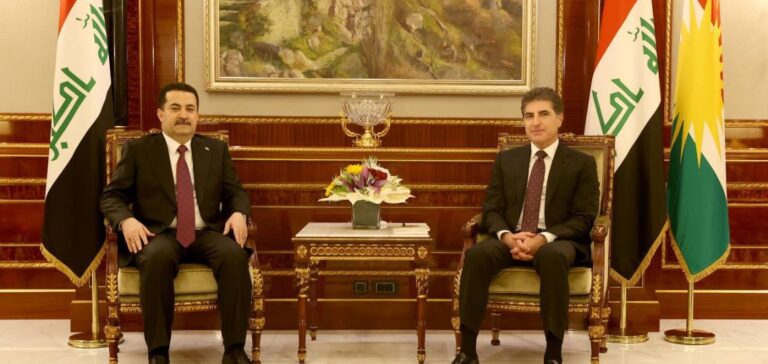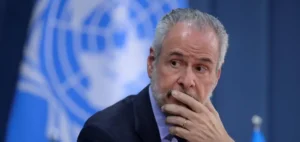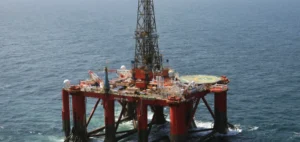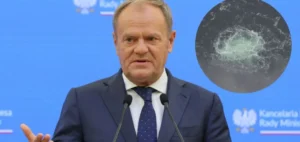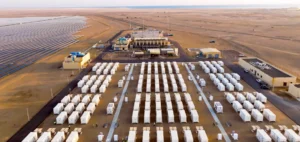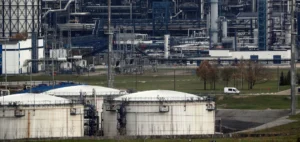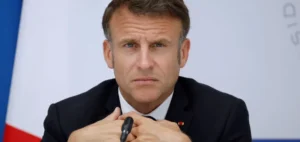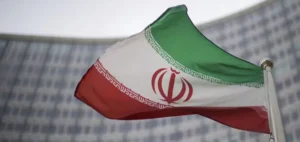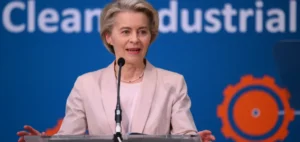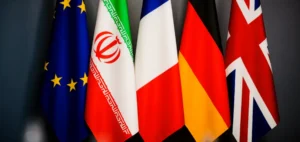Iraq’s federal government in Baghdad and the semi-autonomous Kurdistan region are to set up a committee to draft an oil and gas law to help resolve a dispute over oil production and revenue sharing that has escalated into a suspension of exports from the north via Turkey since March 25.
Crucial Baghdad-Erbil meeting on Iraqi hydrocarbons bill
Delegates from the Baghdad and Erbil governments met on August 5 to discuss the drafting of the bill, in accordance with Prime Minister Mohammed al-Sudani’s instructions, the Federal Oil Ministry said in a statement. The meeting was attended by the federal government’s ministers of oil and foreign affairs, with the participation of a Kurdish delegation and representatives of the oil-producing provinces, among other officials, the ministry said in the August 5 statement.
The meeting participants stressed the need to speed up the drafting of the oil and gas bill, with the participation of the Kurdistan Regional Government and the oil-producing provinces, the ministry added. The meeting’s recommendations include the formation of a committee to monitor the drafting of the oil and gas bill and the presentation of a working paper based on the opinions of Sudani, the Kurdistan Regional Government and the oil-producing provinces in order to finalize the bill, according to the statement. Spokesmen for the Kurdistan Regional Government could not immediately be reached for comment on the outcome of the August 5 meeting.
Iraqi hydrocarbon exports halted: Dispute between Baghdad, Erbil and Ankara
The dispute between Baghdad and Erbil over oil production and revenue sharing escalated in March, when an international tribunal ruled against independent oil exports from Kurdistan under its own 2007 law, prompting Turkey to halt oil exports to northern Iraq via its port of Ceyhan. Since March 25, more than 450,000 b/d of oil normally shipped to the Mediterranean have remained out of service due to persistent problems between Baghdad, Erbil and Ankara concerning the resumption of flows.
The suspension of exports to the north via Ceyhan has led Iraq to produce oil below its OPEC+ quota of 4.22 million b/d since May, when it began implementing voluntary cuts. OPEC’s second-largest producer pumped 4.13 million b/d in June, according to the latest S&P Global Commodity Insights survey.
Impact on the Mediterranean market of the conflict over Iraqi hydrocarbons in Kurdistan
Since 2007, the Kurdistan Regional Government has marketed its crude oil independently, until an international arbitration ruling in March declared that sales via Ceyhan violated a bilateral agreement between Turkey and Iraq. As a result, the Mediterranean market was deprived of its normally abundant supply of sour crude, as operators in Kurdistan had to turn off the taps when crude storage facilities reached maximum capacity.
Baghdad claims that its right to export all Iraqi oil is supported by the decision of the International Court of Arbitration of the International Chamber of Commerce of March 23, which has not been made public, making it difficult to verify the various assertions of both sides on the content of this decision. A temporary agreement between the Baghdad and Erbil governments on April 4 had raised hopes of a resumption of flows, but Ankara has still not indicated when it will resume exports.
Constitutional interpretation, budget conflict and the Iraqi Hydrocarbons Law of 2007
In addition to the stalemate in oil production and exports, Erbil is contesting the sharing of oil revenues between Baghdad and the semi-autonomous region following the approval, in June, of fiscal budgets for 2023, 2024 and 2025. The budget, which includes controversial amendments decried by Kurdish officials, calls for $152 billion in spending, spread over the three years.
For Kurdistan, the budget law essentially obliges the region to hand over 400,000 b/d of its crude oil production, its main source of revenue, to the state-owned oil marketing company SOMO in order to receive the 12.6% federal funding it has been granted. The oil dispute between Erbil and Baghdad stems from the interpretation of the 2005 constitution, with differences over the meaning of articles relating to oil and gas production and revenue sharing.
In 2007, Erbil and Baghdad began trying to draft a comprehensive oil and gas law for all regions of Iraq, but over the years several versions have been presented, which have never been submitted to parliament. In the midst of the dispute over the interpretation of the constitution, Kurdistan moved forward in 2007 by drafting its own oil and gas law and signing agreements with international oil companies to export its crude via Ceyhan, much to the annoyance of the federal government.


